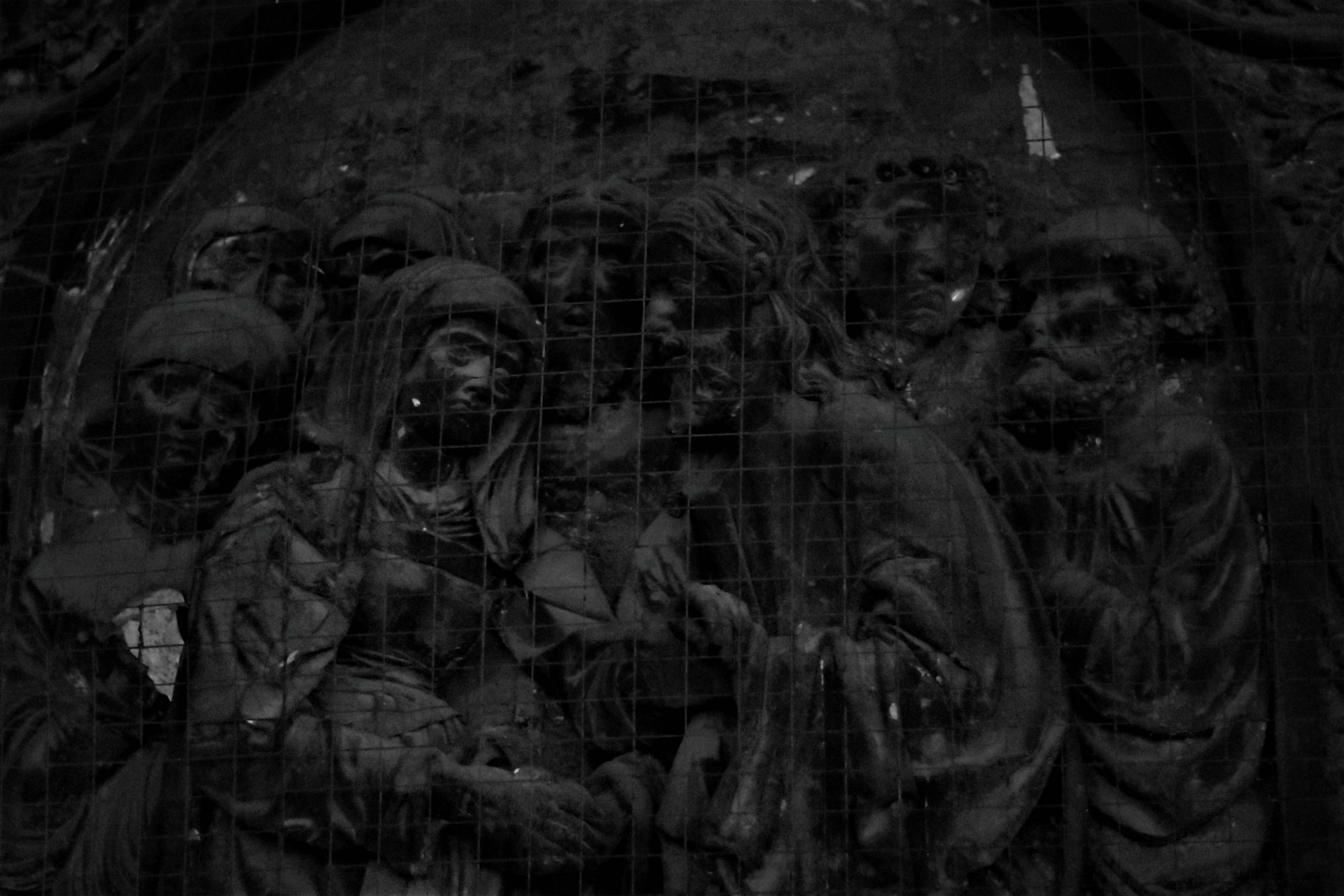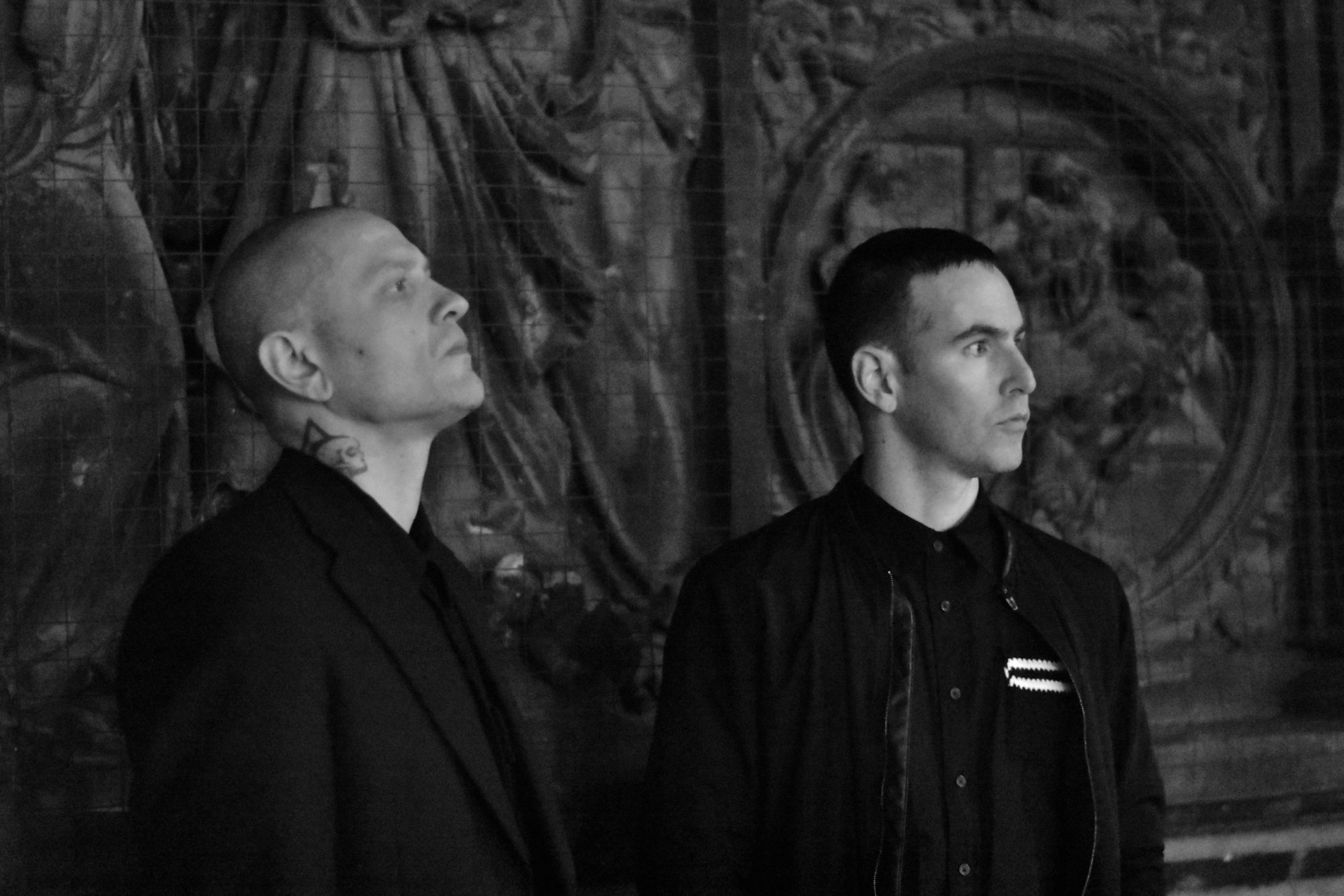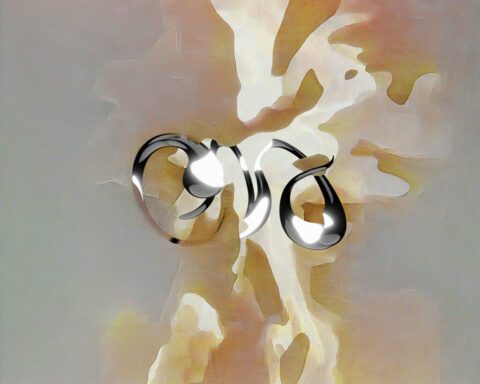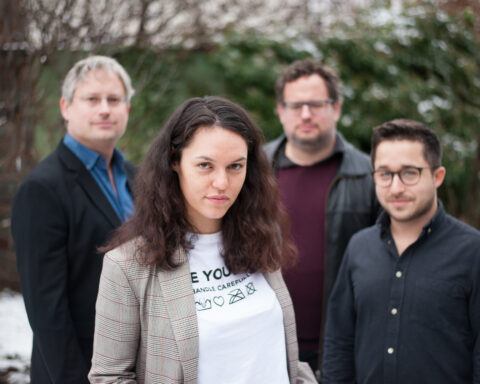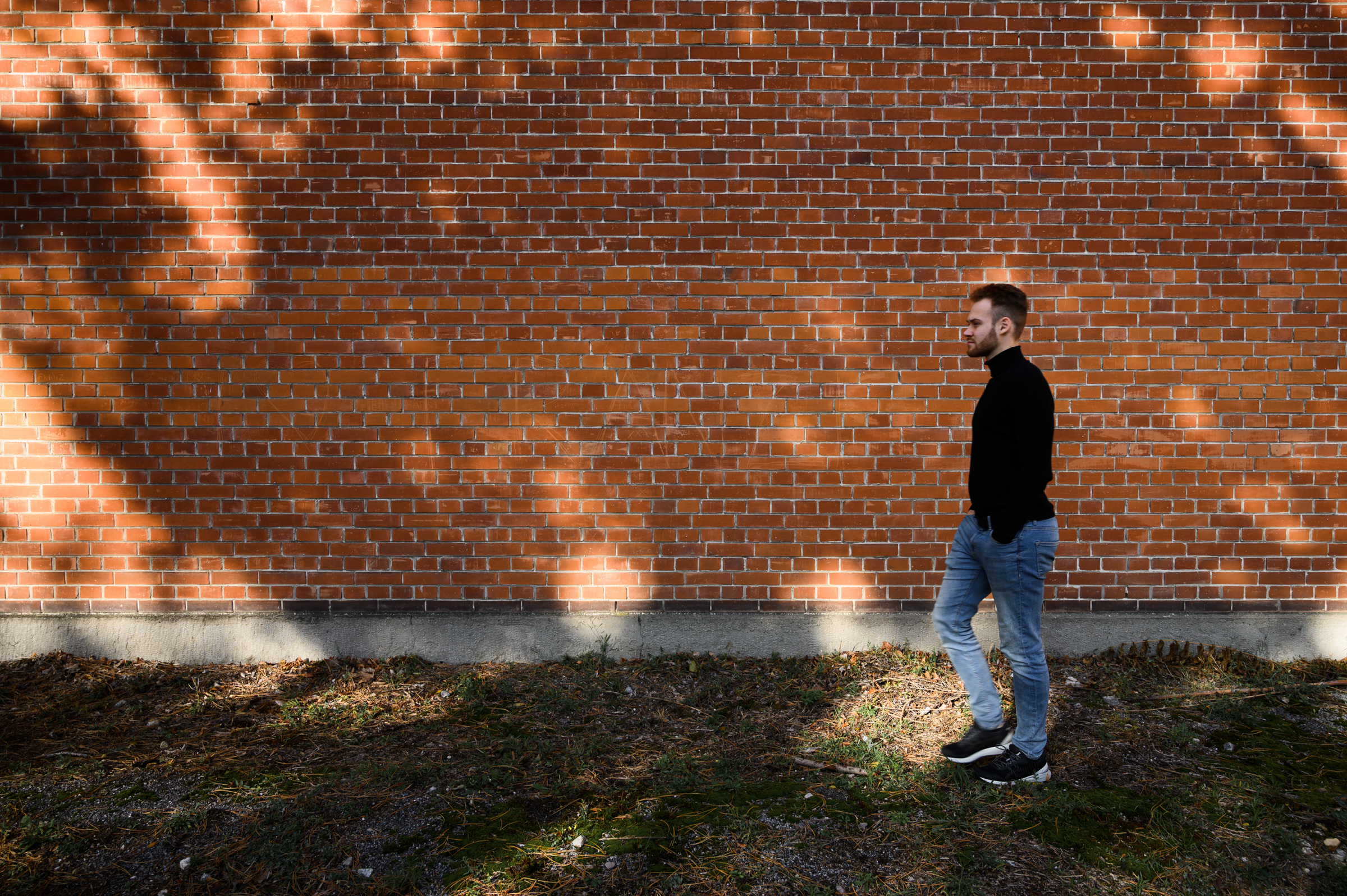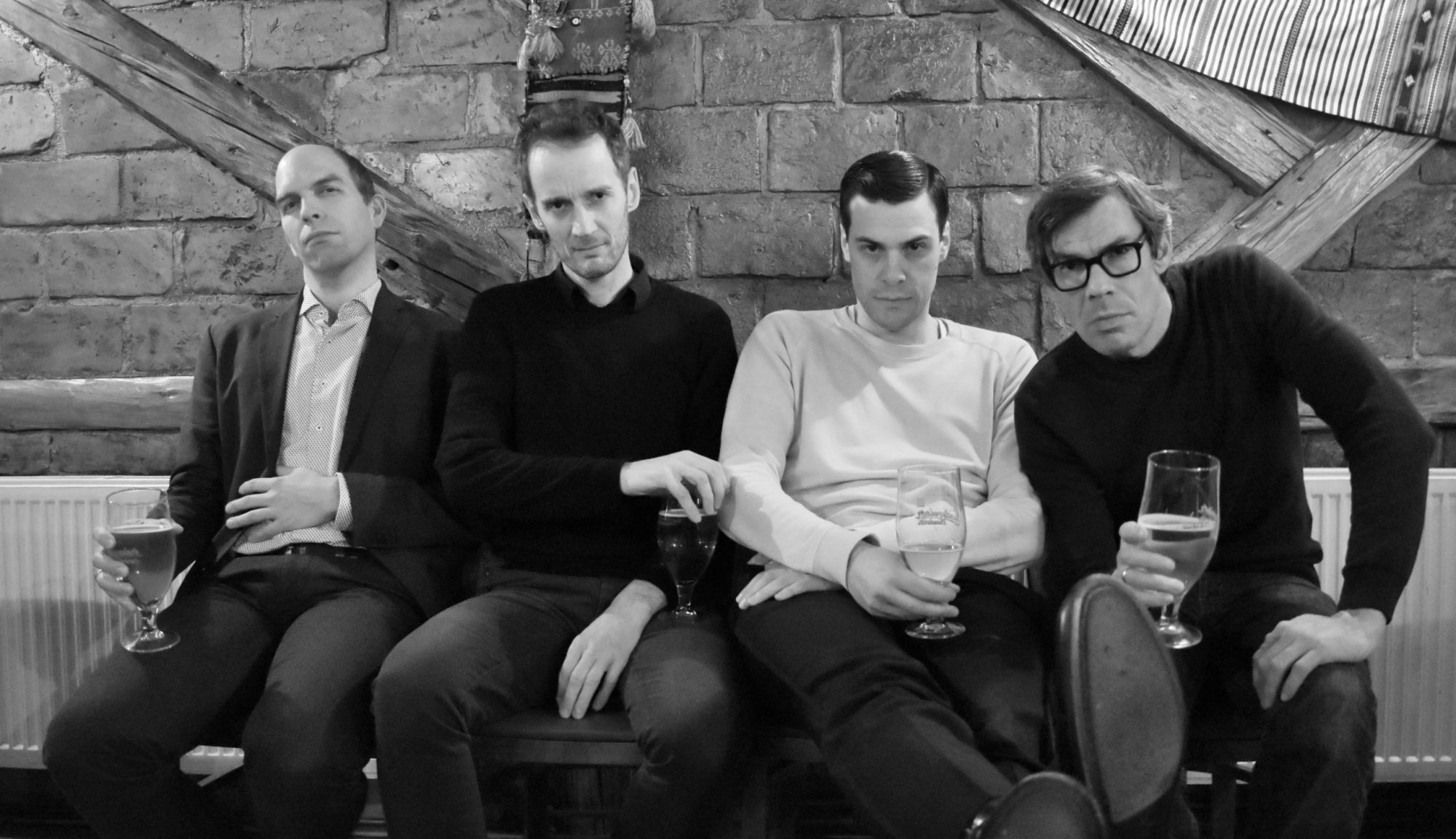Before Austin’s Electro-Industrial prodigies Street Sects take apart first district’s venue Grillx, they have a chat with us, just outside Peter’s church. We discuss their origins and live shows, catch up on their latest output and take a look at upcoming releases.
Special thanks to our writer Regina Montes de Oca Molina for transcribing the interview.
You were founded in 2013. How did you start making music together, and why?
LEO ASHLINE: When we started hanging out together and making music together was much earlier than that, what, 2001, 2002? Something like that?
SHAUN RINGSMUTH: Yeah, 2001. Roughly.
L: You know the story as well as I do so, you wanna go for it?
S: Yeah, we worked together in a Barnes & Noble. A Starbucks within a Barnes & Noble. I was 16 at the time. And it was 2001. We didn’t start playing music immediately, it took some time. Leo was already playing music for a long time in hardcore bands and he had another at that time, and eventually I joined that band playing the guitar. After that we started another band, just guitar-driven, sort of Sonic-Youth-meets-The-Smiths kind of influenced thing. And we were off and on doing that for a long time and we started Street Sects in 2013. We moved to Austin in 2011. Leo took off for a while, came back and then we started Street Sects 2013. We put out the first 7“ in 2014.
Why did you only go for two members? Was the notion behind that „we two want to make music together, we don’t need anyone else“, or was there another motivation for that?
L: It was a bit more practical. Like, the band that he mentioned, the softer version, that was our passion project, brainchild. You know, him and I wrote all the songs, guitar, vocals and so on. We went through, like, in total, 3 different line-ups, if I remember correctly. And we lived in several different states. We started in Florida with one line-up and then we moved to Massachusetts with that line-up and people there were going insane and that line-up dissolved –
S: (laughs)
L: We moved back to Florida, got a new line-up, which was basically another pre-existing band who became our backing band and then that didn’t last because they started to want money and we didn’t have any. And then we moved to Athens, Georgia and we had another whole line-up and that one ended up dissolving because of alcohol and girlfriends and, you know. So, when we started playing music again, basically we were tired of having to lose an entire catalogue of songs simply because the people who were integral to playing those songs were no longer a part of the project, so we asked ourselves: „How can we make music where we don’t need to rely on other people?“ – and let’s face it, musicians are fucking flakes. We know that we’re in it for the long haul so that was how we turned to electronic music and working as a duo.
You were mentioning that it’s easier to write songs with only two people. How is your typical song writing process working out?
S: Well, I don’t know if it’s easier for me (laughs). A lot of instrumentation.
L: But you know that you’re getting a product that you’re going to like, rather than having to compromise for somebody’s guitar or something you’re not into. You get more control. But the work…it’s more of a workload.
S: I think I mean doing all the instruments, seeing it from all the angles as opposed to seeing it with another guitarist that you trust or drummer, banging something out. You got it all self-contained. So, I’ll start a piece of music from any angle; it could be a piece of drums, keyboard. Usually I’ll write like a minute or two worth of music and send it over to Leo, back and forth, because he has to sing along to it. So, he finds what better resonates with him and we’ll keep it going from there. Occasionally I write a full piece but otherwise…
The lyrics come last?
L: Yeah, I approach the lyrics based on how the music makes me feel. If Shaun’s writing an insane, technical, industrial hardcore song, I’m not gonna write sad lyrics and vice versa. If he sends me something that is more melancholic and introspective-sounding, then I’ll approach it from that angle. That’s a lot easier than if I wrote lyrics that he hadn’t written prior music to them, although we’ve never tried it, so, I mean, who knows. Seems to make more sense to make the music first.
You mentioned sending the track back and forth. You don’t work together in the studio?
L: No, we never have. I mean, in this project. We certainly have in other bands. Shaun is in his own world in his bedroom and the headphones and that’s where basically all the music is written, and I give feedback. Sometimes it’s stuff like „yeah, I like this part, I don’t like this part“; sometimes it’s like, „try extending this part or switching to something“. I can only describe it to him in words, which then he has to actually write the music. Sometimes that’s successful, sometimes it’s not as far as communication goes but we always end up with a product that we like. I mean, I guess that’s debatable.
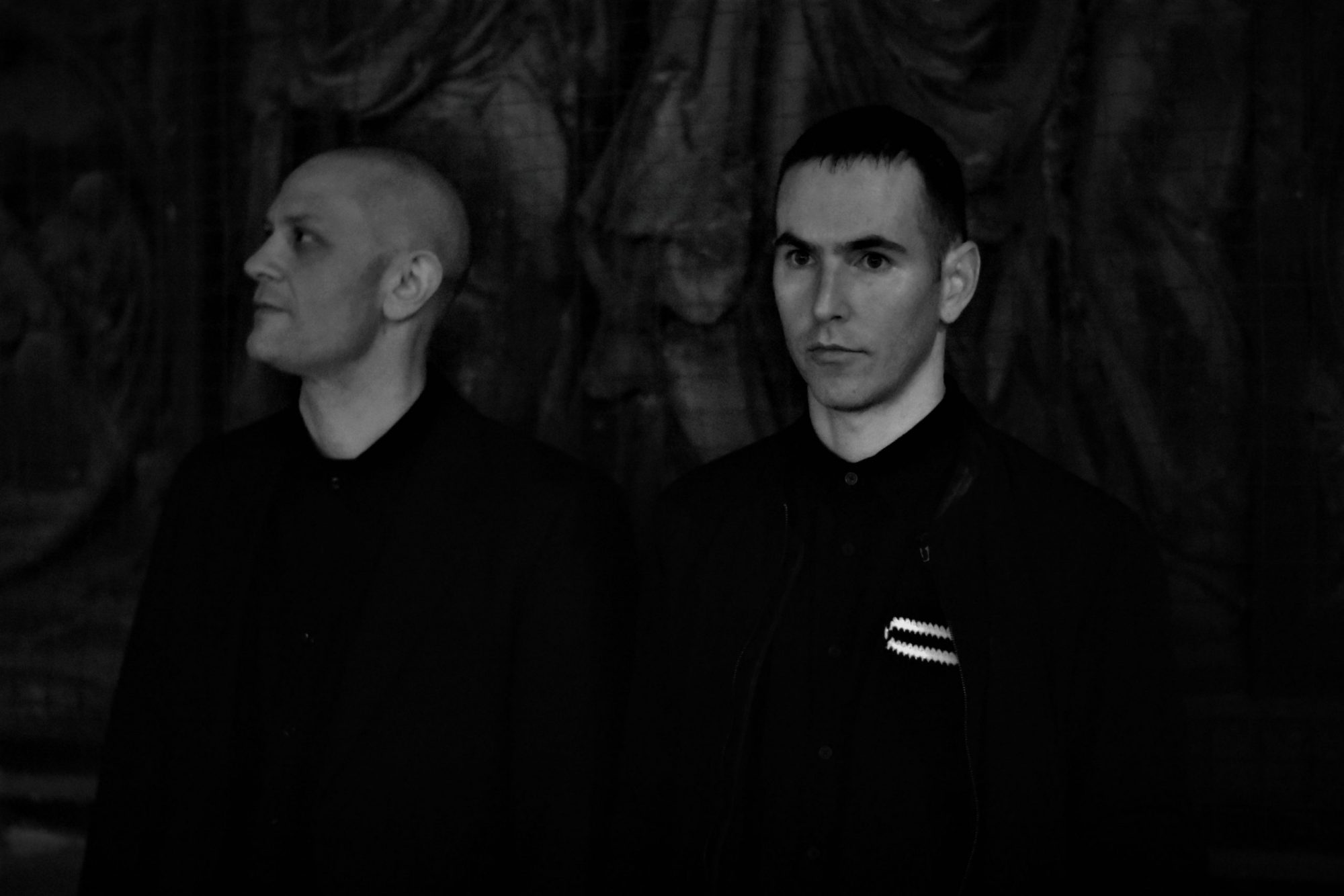
Why do you use the Reaper as the mascot? The woman with the scythe.
L: Initially she was just supposed to be on the Gentrification series, and then it was gonna be photographs and photographs didn’t work. And then we had a painting and painting didn’t work. And then we found AJ, who is the illustrator who has done most of our covers at this point, so it was kind of a way of toying with what I thought was a stereotype of heavy music, which is the Grim Reaper, and also having fun with kind of the aesthetic of bands that I was a big fan of when I was a young kid, like Iron Maiden, you know, they have Eddie. It’s amazing. All those Iron Maiden covers are totally awesome. You get to see Eddie in all those different scenarios and, you know, sometimes he’s in the future, sometimes he’s in the past…I always thought that was really cool and then there’s Vic from Megadeth…
She wasn’t supposed to be the mascot at first. It was just going to be on these covers and there’s an element of realism and then also an element of surrealism and kind of noir mixed with a bit of obviously fancy because Grim Reaper isn’t real, but it was an allegory for what we were trying to convey on those covers: the process of gentrification filtered into personal experience and feelings of alienation and kind of being on the outside of the society. Because the songs on the records aren’t really about the social elements of gentrification. They’re more about the feeling, the personal feelings. Perhaps what some of those people were going through, stories of addiction and things that come with class dynamics.
You recently decided to continue these series and put out III and IV.
L: There was always meant to be V and we did all the covers and such. The covers have been finished since the beginning of the band and we’re just finally finishing it up because we got sidetracked with Cleanser and the full-length, but to fully answer your question, we liked Lizzy enough to where we wanted her to stick around, you know? And sometimes she’s more present in the art than other, but she’s kinda always there. I mean, if you see Rat Jacket she’s not even in the cover, but there is a piece of graffiti in the wall where you can kind of see her.
You’ve been talking about past addictions a lot. Obviously I don’t want to get too personal if you don’t want to talk about it but how significant is it for Street Sects?
L: Do you mind if I turn this one to Shaun? I think I’ve done a lot of talk on addiction and Shaun has got his own experience with that, too.
S: Since I don’t write the lyrics, there’s really nothing I could say that would attach any addiction I’ve had to the music. I don’t think that it has much bearing on it. I’ve had trouble with addiction, struggled with alcohol since I was at least 14 and I’ve been sober now for several years but that’s all I have to say about that.
How do you get out of it?
S: That’s a really good question. I suppose you take that leap and say goodbye to friends and you have to change some of your habits, you know, talk to other people who also struggle. And find something worth living for that is not booze.
Street Sects?
S: I don’t know about that but something that you can be passionate about. Maybe a few things.
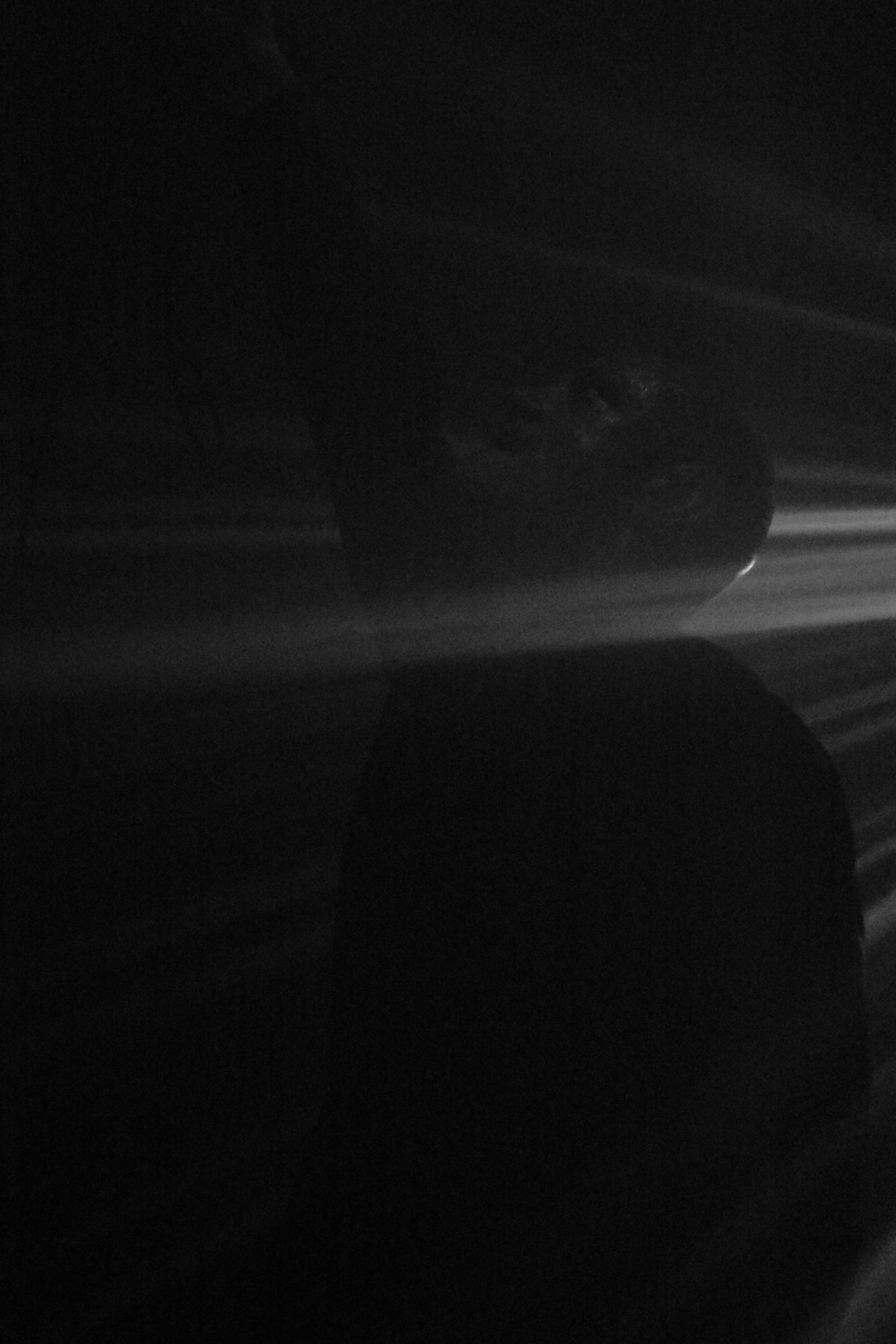
Thank you for talking about that. What is the general philosophy behind Street Sects, what is the agenda? Do you have one?
L: Well, agenda, no. I think that’s too strong of a word. But I guess our main agenda would be to create art that we’re proud of and that we can build towards some sort of greater meaning throughout a stretch of times in our lives. It’s been almost 21 years now that we’ve been playing music together and what do we really have to show for it outside of what we have accomplished with this project? Speaking for me, the agenda is to feel pride in the work that we do and know that we took our time to create exactly what we wanted to create and say exactly what we wanted to say. It’s self-gratifying. We love music, we love art, and this is our passion and we wanna make it as good as we can make it.
S: He said it. I just wanna write music that will stand the test of time and will be listened to long after I’m dead. You know, everlasting life. Not that I want to be around underappreciated. But I certainly appreciate musicians that are no longer on Earth.
How important is the action of playing live for your project?
S: Playing live is a central part of any band. One has to do it, especially if you want to make money. But our band, we definitely try to make an experience out of it for people, an intense experience. So that’s one part of it. I really prefer writing music in a studio style and making records -that’s just kinda lofty, that sort of view of it. But you do have to play live and if you’re gonna play live, might as well make it exciting, so we try to make a show that people will remember, that doesn’t bore them.
L: To elaborate on what he was just saying, like, that feeling of claustrophobia and fear and alienation, all of those things, they’re something that, when we can control the environment as well as we would like to, we try to instil in the audience. I mean, that’s the goal, to eliminate boredom and passivity and inject some real thrill and danger and excitement into the audience. That’s when we actually do our job the way we want to. Of course sometimes you can’t do what you want to do because of the venue. But it’s all part of the streamlined ideas and themes of the band. The live is just one more aspect that we are bringing.
I really like how you always see Street Sects as a project that includes everything; you have the music, the aesthetic. Did you all plan it out from the beginning?
L: I think the majority of it was all planned in advance. I know from my end, things like the logo, the idea of the live show, the overall kind of noir aesthetics of the whole project…that was all stuff that we talked about and that I ran by him before we had ever even written a song that was an actual Street Sects song. We had to write several demos that were aiming for what we talked about, but it was mostly conversational: „How do we want this band to sound like? And how do we get there?“ It wasn’t like we just wrote a song and it was immediately Street Sects. It took a while to get there but during that process, we came up with all the other ideas.
As you already mentioned, your live shows are notorious for being intense. Is it exhausting? Does it get exhausting after a while?
L: Depends on the tour. This touring no, this touring’s been great. I’ve been really enjoying myself. But there have been tours where it’s fucking miserable. The show itself.. for me, if the show is good and things are, you know, not against us for whatever reasons, I always find it to be the best part of the day. It’s a great honour to be able to play in front of people and connect with people on a very personal, physical level. But you know, if we’re on a tour in which we slept 2 hours the night before and there’s 3 people in the audience and the sound guy is being an arsehole, maybe that’s not the most fun thing.
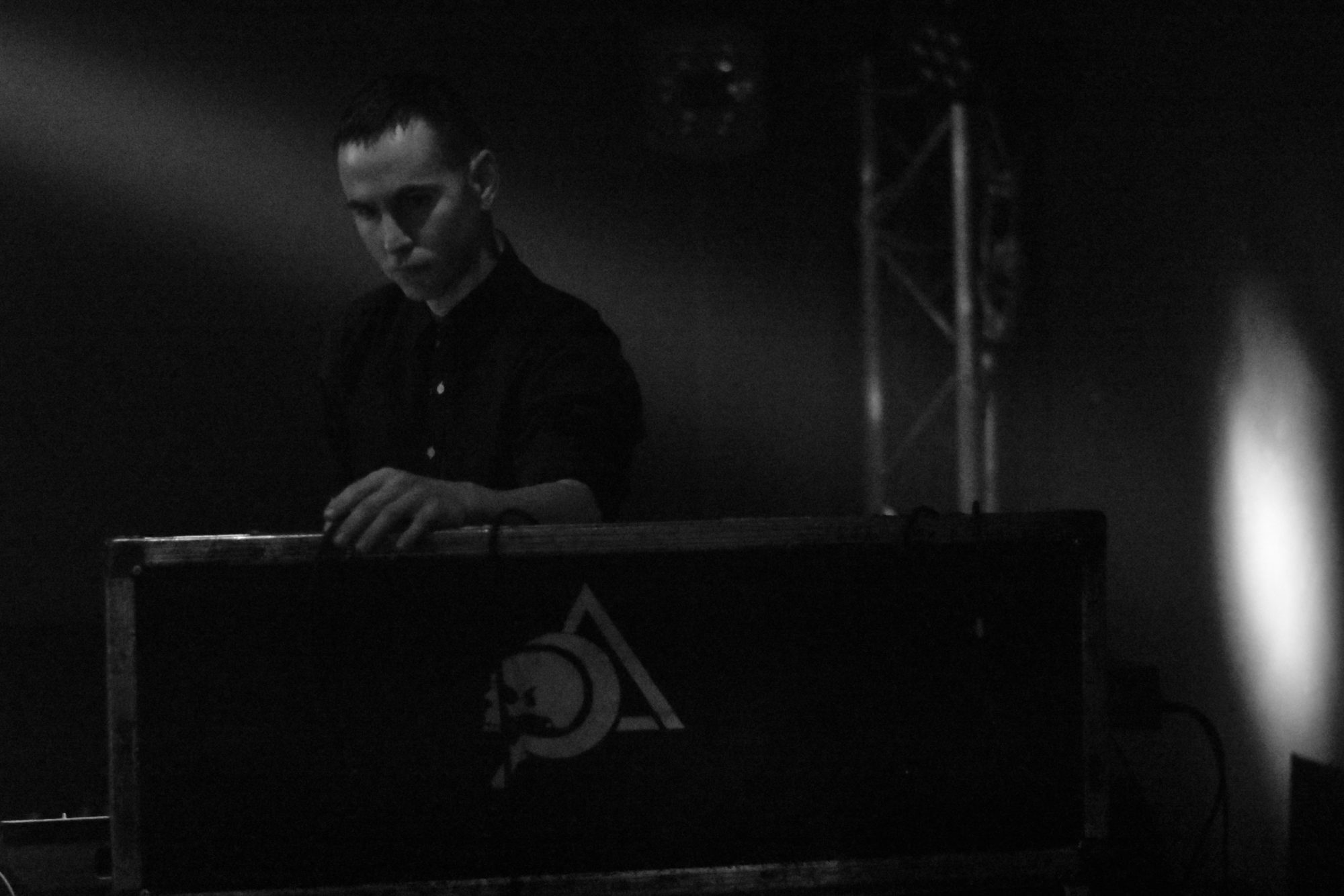
Next larger topic I want to address is music scene in general. What artists would you say have influenced you the most? Are there any records? What influences your song writing, your vocal style, your instrumentation?
S: So much musical influence. The answers we give specific to Street Sects are Hardcore, Industrial. But then there’s this whole history before our band when I was just listening to a lot of things, guitar music. A lot of Elvis Costello, a lot about The Microphones, a lot of different kinds of music. I had a Jazz phase, plenty of Jazz music got in there. You know, growing up also a lot Hip Hop, I’m a huge fan of Tupac, there’s no denying it. You can’t hear it in our music but in its way it plays on your brain. You’re thinking about the instrumentation, vibe, sound and what they do.
What about your very particular vocal style?
L: I mean, there are people and bands that I sang along to as a kid but I think the way my vocals ended up sounding has a lot to do with the fact that I don’t think I’m a very good singer, as far as having natural talent. I always enjoyed singing, I’ve always liked it but when I became a singer it was when I was in the hardcore band. I started up as a guitarist then I couldn’t keep up with the gear that the other members had so instead of kicking me out, they made me the singer because, I mean, most people can scream if they try hard enough. So it was going from being able to perform well -I think I was a better performer than I was a singer at first- and screaming and then, after a while, getting tired of screaming and actually wanting to sing and express myself from a melodic level. When I started doing it, I was horrible. I couldn’t stay in key for the life of me and I didn’t know how to restrain myself and not try to „oversing“ and try too many things.
I listened a while back to some of those early things I did and it’s embarrassing and horrible, so my particular style came from teaching myself how to work within my limitations and still accomplish what I wanted to as a singer and express myself in a way that felt honest and real and emotional, if that answers the question.
Are you interested in the modern industrial scene?
L: Honestly, not really. There are some bands out there that I think are cool, but I don’t listen to that much Industrial or Metal or Punk much these days. I probably listen more to 70s Rock and Hip Hop and things like that, or acoustic Singer/Songwriter. We have to listen to so much heavy music while we write it and then of course when we tour and play with other bands and I think performing aggressive music is more satisfying than if we were getting up there and doing piano ballads because you can obviously perform more intensely. But as far as going home and listening to a Metal album or something, maybe Iron Maiden or Metallica once in a while but probably not too much new. Although there’s a lot of great artists out there.
I’m asking this because we’re doing an article that also features you as a band and discusses the influx of Noise into mainstream genres that we experience at the moment, like Rock, Hip Hop, and it’s been blowing up lately and you get artists like Lingua Ignota, Chelsea Wolfe, Daughters, you just get a lot of Noise in mainstream genres. So, why does it happen?
L: I don’t know so much about how many mainstream rock bands are doing that, but maybe I’m just not educated. But I do see it in Hip Hop, because I think Hip Hop has always been a genre that tries to push music forward on some level. They did that by staying current on what’s happening in the underground as well as what’s happening in the mainstream. I think that’s just kinda par for the course as far as the progression of Hip Hop and how it evolves and has evolved. But it’s awesome to see a lot of those artists pulling it and being „oh, that sounds like an old Industrial band or something for a second“ and they’re not imitating it, they’re taking from it and turning it into something new, like how David Bowie did. In his best records, he never sounded like a genre or another band, but he would take elements from this and that and create something new, and I think that the best artists do that.
What would you say is the appeal of having this element of Noise in your sound? In the sound of a band?
L: I guess it depends on what your definition of „Noise“ is.
S: Yeah, that’s what I was thinking. Hardcore bands have been doing Noise for a long time, whether they let feedback drawn or something else. Even some ambient recordings can come off as Noise when you hear them long enough.
I was actually thinking about this Harsh Noise, almost white noise that you get on a stereo.
L: Well, let’s say End Position, right? For example, sounds like a Noise record. But when Shaun was writing that stuff, I don’t think he was thinking about Noise. He’s just doing sound collage. If you hear our original mixes of that record, some of the stuff in it sounds ridiculous. I know Shaun’s goals for it is like Roxy Music and Steely Dan and this kind of things.
S: Totally.
L: And he’s blending all these things that sound like horns or things that sound like just moving pieces of soundscapes. And then we worked with Seth Manchester, incredible producer. It was just a lack of our knowledge and our limitations with digital software and stuff, it’s all filtered through distortions and things like that, which made the end result sound more noisy and perhaps harsher and blurred together than it was initially intended. Our biggest regret about that album was that a lot of the work, the detail work that he did on these songs, you can’t really hear it because distortion kinda makes everything gelled together, so I don’t think it was meant to be Harsh Noise, really.
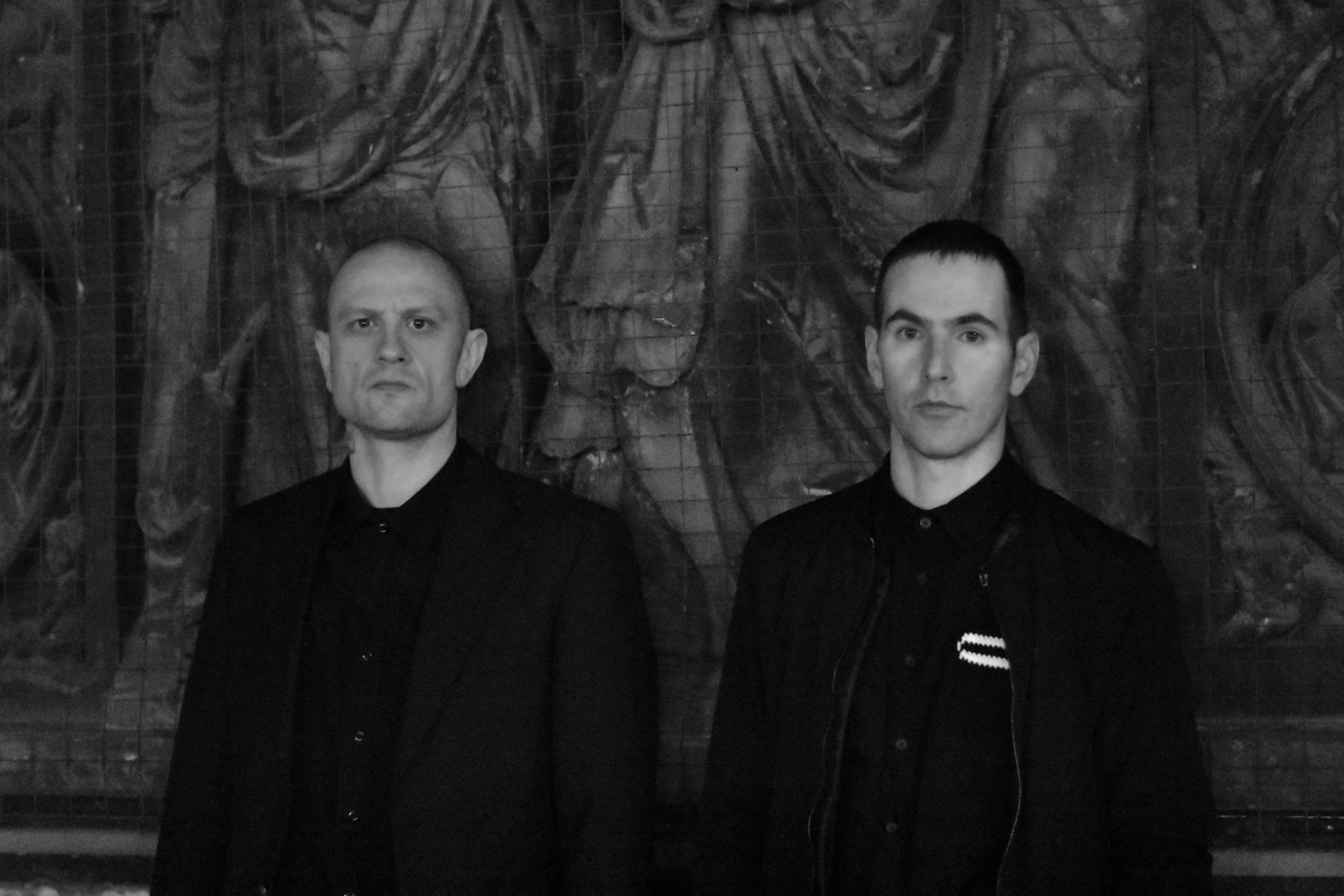
Let’s talk about the internet. What’s your opinion of the internet as a medium to get music out there? I would say it played a pretty big role in getting your music out there, like Bandcamp. That wouldn’t have been possible 15 years ago.
L: I think it’s great, I don’t really have any complaints about it. For a while I kinda had issues with things like Spotify and streaming services because I felt the ease with which people can just breeze their way through countless artists without really having to invest any time or money into a record, which kinda gives you more of a bond with a piece of art, that kinda bothered me. But I think I’ve gotten over that. It is what it is and people are gonna interact with music however they’re gonna interact with it. And it certainly hasn’t hurt us as a band to be able to put out a 7“ that was self-released and then send it out to zines and publications and having being talked about it or write about it and get it out there to people who would’ve never heard it otherwise, so I think that’s all great.
As you were talking about promoting yourselves, how did you first do that, and do you have any advice for artists that want to do the same? Like, promoting your music or doing merch.
L: I think a lot of bands struggle – and I hate using this word over and over again-, a lot of bands struggle with having an aesthetic or a clearly defined visual element to their music, and before anybody ever hears your music, they’re gonna see some kind of art, whether it’s a press photo or an album cover or a tour poster, they’re gonna see that first and that’s a big part of what’s gonna draw people into your music or make them not interested. So I think a lot of bands could benefit from putting more time, effort and preciseness into the way their visuals are going to look and it’s also, like, you gotta realise that people are busy and they have very short attention spans, so the more difficult you make it for people to try to understand what it is that you’re doing and what it is that you’re aiming for with a sound, the less likely they’ll wanna bother with it, because they don’t have time to try to figure it out. It’s like working into a box; you can make your music as complicated and difficult and unique as you want to, but it should make sense, it should look like a complete vision. Even if people don’t know what it is at first, once they look into it, they get it. It’s not like, it’s something that’s kind of on the fence, something that doesn’t feel 100% realised. So that’s the best advice I could give somebody: have a complete vision, because that’s 90% of it. The marketing, the press, none of that shit really matters if people don’t connect with what you’re doing.
To wrap things up, let’s just talk about the future and what is going to await us from Street Sects. Gentrification IV is upon us, so what can we expect from that EP?
L: The Gentrification was initially a serial album. It was the idea of telling an entire record in five instalments kinda like serialised novels. So, expect more of the sound that has been established on previous releases. There’s a bit more melody and obviously the production is much better than in the early ones. Taking five years in between number II and number III, obviously we got better as songwriters and Shaun got better as a producer and arranger, so there’s a little bit of a gap between those two. But I think it’s kinda self-defined as far as what it’s going to sound like.
S: We backtracked a little bit returning to it. There’re some new melody in there that would’ve probably never made the first couple of 7“ for sure.
Why?
S: Because we went on to make End Position, think about the sounds in there and everything combined a bit more than on the first two 7“.
Do you already have plans for a new full-length?
L: We’re working on it, that’s the next goal. We got a tour in December, another tour in January and after that, we are holding up. We’re probably gonna spend at least a year quiet and you probably won’t hear from us. We really want to make sure we spend as much time as we possibly can on this next album and make it. Whether people like it or not, it doesn’t matter but we wanna be able to put it out there and be like „no regrets“. Because everything we’ve done so far, there’s always a little something here or something there and we’re like „ah, it could’ve been better“, or we’re trying to meet deadlines or we’re trying to stay prolific, but sweeping away those pressures and just making something that it’s okay if you hate it, it’s still good. That’s kinda how I wanna feel about it.
Sound like you already have an idea how you’re gonna progress the sounds?
L: We know what we’re going for. I mean, I think at this point it would be better to not talk about it? But we have a very clear vision on this third record and it’s not gonna be the same as anything we’ve ever done before so that’s all I can say.
Thank you, you get the last words.
(both laugh)
S: Thank you so much for interviewing us.
L: Yeah, thank you. We appreciate you taking the time and having interest in what we do, it means a lot to us, so thank you.
